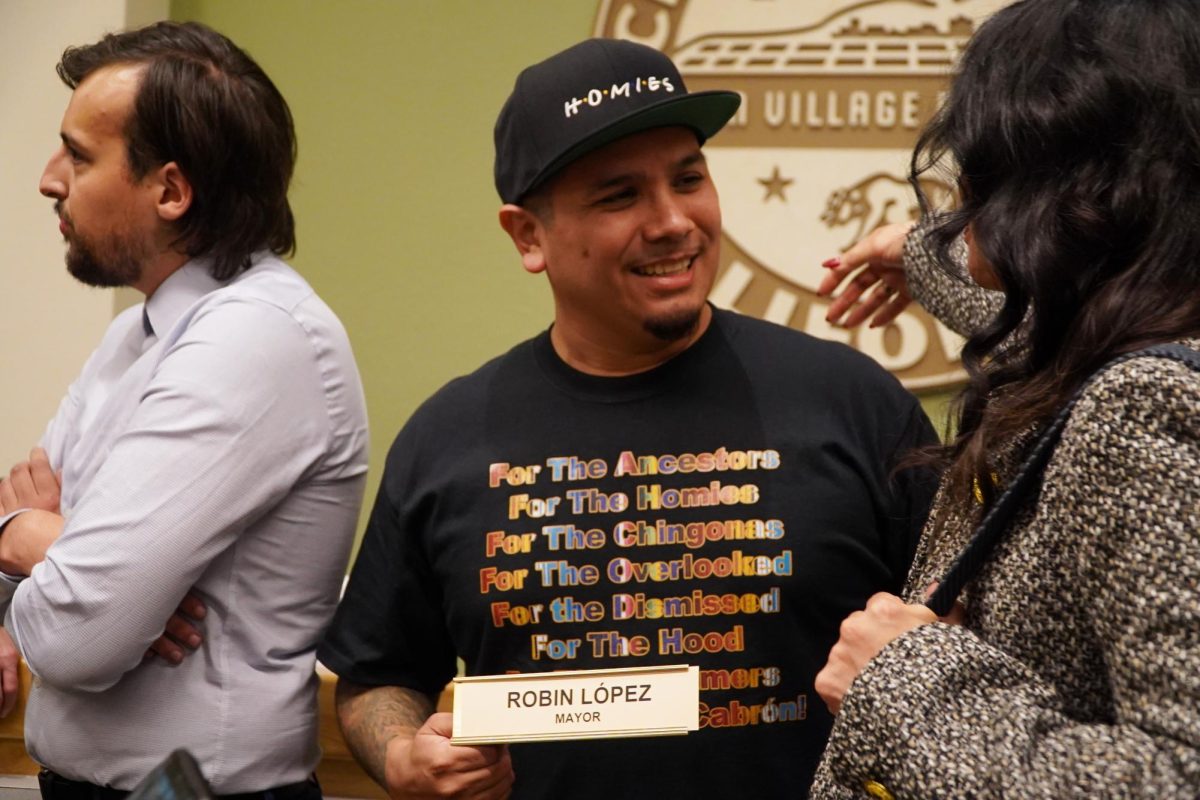The U.S. Supreme Court heard oral arguments Oct. 8 on whether Title VII, applies to workplace discrimination based on sexual orientation and gender identity in the cases Bostock v. Clayton County and R.G. and G.R. Harris Funeral Homes, Inc. v. EEOC.
In a two-hour long session, justices heard and questioned the lawyers’ arguments from the two cases, one involving two men who were fired from their jobs after coming out as gay and the other involving a transgender woman who was fired after informing her boss of her intent to transition.
The ideological squabble that ensued not only kicked off the most impactful LGBTQ+ civil rights case in the U.S. to date, but also painted a picture of how harmful misperceptions toward sexual and gender minorities can manifest as laws and policies. As a trans person, this is not a picture I enjoy looking at.

Obergefell v. Hodges, the 2015 Supreme Court case that resulted in nationwide marriage equality, is hailed by many as the end-all of LGBTQ+ civil rights cases. The results of the cases heard last week, however, will have a much wider scope of impact — one that covers all LGBT+ people, not just those who plan on marrying a partner of the same gender.
“It seems likely the court will conclude that discrimination based on sex, as the statute describes it, includes discrimination against people who are gay or transgender,” Dwight Holton, former U.S. Attorney for the state of Oregon said. “This should mean sweeping protection for people in the LGBTQ community.”
The decisions on the cases won’t be announced until the end of June 2020. Though opinions of the justices appeared to be more or less evenly split, it seems possible that the outcome may hinge on conservative Justice Neil Gorsuch, who was appointed by President Trump.
Gorsuch suggested multiple times that the wording of Title VII may already encompass protections against discrimination based on sexual orientation and transgender status. It was, he said, “really close, really close.”
“Because it’s just a statute, it doesn’t have the same force as a constitutional decision,” Holton said, “but the application of federal law is pretty broad, so this should affect the vast majority of employers. And I see a zero percent chance that Congress would act to reverse a decision by the Court concluding that Title VII extends to protection for LGBTQ employees.”
Currently, there are 12 states that don’t offer any protection against employment discrimination based on sexual orientation or gender identity. Anti-discrimination laws upheld by some states cover sexual orientation but not gender identity, or vice versa, and many states have exemptions in place which limit how far these laws can extend. Title VII protections would offer LGBTQ+ people security in places without anti-discrimination laws applicable to them.
Aimee Stephens, the Respondent from R.G. and G.R. Harris Funeral Homes, Inc. v. EEOC, was fired from her six-year job at a funeral home after coming out to her boss as a trans woman.
“Stephens’ case serves as a prime example of the ongoing and everyday violence that is inflicted on transgender people,” Juniperangelica Cordova, the senior organizer of TRUTH, a leadership program for trans youth run by the Transgender Law Center said. “The fact that her case is about employment underlines how even when trans people attempt to support ourselves and become self-sustained, there are countless ways that this government allows obstacles to be thrown our way.”
When there are no laws in place preventing anti-LGBTQ+ discrimination in the workplace, Cordova said, people often have to choose between enduring a harmful work environment or risking the dangerous consequences that come with unemployment. “I’ve witnessed and experienced multiple instances of anti-trans actions that create a hostile workplace and lead to a lack of confidence or a fear for one’s safety,” she added.
Twenty trans people in the U.S. have been murdered this year, 19 of whom were black trans women. Violence impacts our communities at every level, and gets worse at the intersections of marginalized identities surrounding race, gender, and economic status. This means it’s crucial that LGBTQ+ people are able to access the security of employment without fear of discrimination.
Of course, this is not what conservative justices were concerned with last Tuesday. What worried them more were the issues of trans people’s participation in sports, dress codes, and, of course, bathrooms — topics that have nothing to do with the cases at hand but everything to do with the right wing’s stubborn animosity toward anyone who challenges traditional notions of gender and sexuality.
“You’re trying to change the meaning of what Congress understood sex to mean and what everybody understood,” Justice Samuel A. Alito Jr. said to a lawyer representing the two Petitioners from Bostock v. Clayton County and R.G. He said that if the Court interprets the 1964 statue to apply to discrimination based on sexual orientation, it “will be acting exactly like a legislature.”
At one point, Gorsuch advised justices to consider the “massive social upheaval” that would follow a ruling in the workers’ favor.
Job security brings with it the securities of housing, healthcare, and economic stability — factors that, for many LGBTQ+ people, can be matters of life or death. With this in mind, it seems that a massive social upheaval might be exactly what we need.






